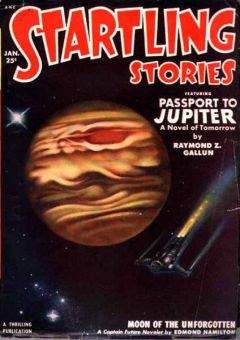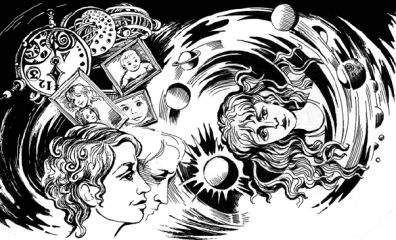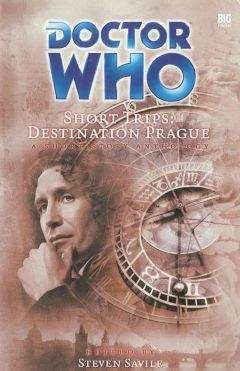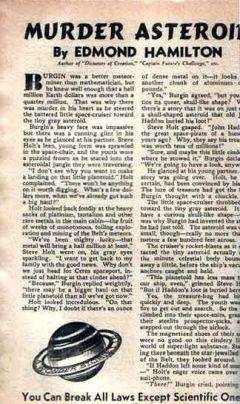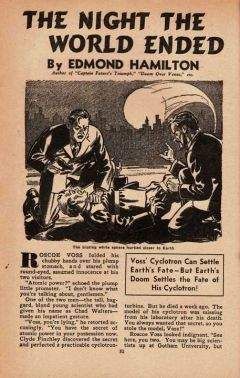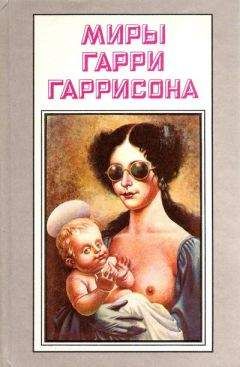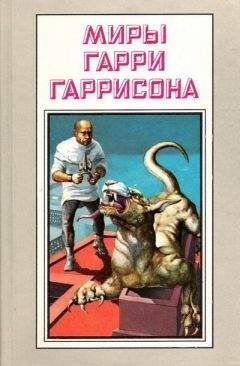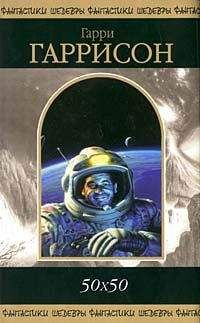Somerset Maugham - Sixty-Five Short Stories
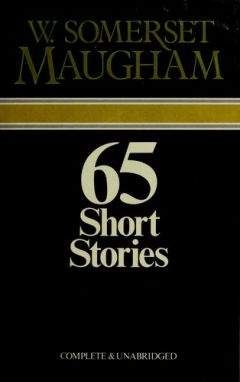
Скачивание начинается... Если скачивание не началось автоматически, пожалуйста нажмите на эту ссылку.
Жалоба
Напишите нам, и мы в срочном порядке примем меры.
Описание книги "Sixty-Five Short Stories"
Описание и краткое содержание "Sixty-Five Short Stories" читать бесплатно онлайн.
I parted with the pair at Victoria and concluded that I should never see them again. I set about sorting my impressions and made notes of the various points that I thought would prove useful.
When I arrived in New York I found an invitation to luncheon at the Ritz with an old friend of mine. When I went she said to me:
'It's quite a small party. A man is coming whom I think you'll like. He's a prominent banker; he's bringing a friend with him.'
The words were hardly out of her mouth when I saw coming up to us Campbell and Peterson. The truth flashed across me: Campbell really was an opulent banker; Peterson really was a distinguished engineer; they were not card-sharpers at all. I flatter myself I kept my face, but as I blandly shook hands with them I muttered under my breath furiously:
'Impostors!'
Straight Flush
I am not a bad sailor and when under stress of weather the game broke up I did not go below. We were in the habit of playing poker into the small hours, a mild game that could hurt nobody, but it had been blowing all day and with nightfall the wind strengthened to half a gale. One or two of our bunch admitted that they felt none too comfortable and one or two others played with unwonted detachment. But even if you are not sick dirty weather at sea is an unpleasant thing. I hate the fool who tells you he loves a storm and tramping the deck lustily vows that it can never be too rough for him. When the woodwork groans and creaks, glasses crash to the floor and you lurch in your chair as the ship heels over, when the wind howls and the waves thunder against the side, I very much prefer dry land. I think no one was sorry when one of the players said he had had enough, and the last round of jack pots was agreed to without demur. I remained alone in the smoking-room, for I knew I should not easily get to sleep in that racket and I could not read in bed with any comfort when the North Pacific kept dashing itself against my port-holes. I shuffled together the two packs we had been playing with and set out a complicated patience.
I had been playing about ten minutes when the door was opened with a blast of wind that sent my cards flying, and two passengers, rather breathless, slipped into the smoking-room. We were not a full ship and we were ten days out from Hong-Kong, so that I had had time to become acquainted with pretty well everyone on board. I had spoken on several occasions to the pair who now entered, and seeing me by myself they came over to my table.
They were very old men, both of them. That perhaps was what had brought them together, for they had first met when they got on board at Hong-Kong, and now you saw them sitting together in the smoking-room most of the day, not talking very much, but just comfortable to be side by side, with a bottle of
Vichy water between them. They were very rich old men too and that was a bond between them. The rich feel at ease in one another's company. They know that money means merit. Their experience of the poor is that they always want something. It is true that the poor admire the rich and it is pleasant to be admired, but they envy them as well and this prevents their admiration from being quite candid. Mr Rosenbaum was a little hunched-up Jew, very frail in clothes that looked too big for him, and he gave you the impression of hanging on to mortality only by a hair. His ancient, emaciated body looked as though it were already attacked by the corruption of the grave. The only expression his face ever bore was one of cunning, but it was purely habitual, the result of ever so many years' astuteness; he was a kindly, friendly person, very free with his drinks and cigars, and his charity was world-famous. The other was called Donaldson. He was a Scot, but had gone to California as a little boy and made a great deal of money mining. He was short and stout, with a red, clean-shaven, shiny face and no hair but a sickle of silver above his neck, and very gentle eyes. Whatever force he had had to make his way in the world had been worn away by the years and he was now a picture of mild beneficence.
'I thought you'd turned in long ago,' I remarked.
'I should have,' returned the Scot, 'only Mr Rosenbaum kept me up talking of old times.'
'What's the good of going to bed when you can't sleep?' said Mr Rosenbaum.
'Walk ten times round the deck with me tomorrow morning and you'll sleep all right.'
'I've never taken any exercise in my life and I'm not going to begin now.'
'That's foolishness. You'd be twice the man you are now if you'd taken exercise. Look at me. You'd never think I was seventy-nine, would you.'
Mr Rosenbaum looked critically at Mr Donaldson.
'No, I wouldn't. You're very well preserved. You look younger than me and I'm only seventy-six. But then I never had a chance to take care of myself.'
At that moment the steward came up.
'The bar's just going to close, gentlemen. Is there anything I can get you?'
'It's a stormy night,' said Mr Rosenbaum. 'Let's have a bottle of champagne.'
'Small Vichy for me,' said Mr Donaldson.
'Oh, very well, small Vichy for me too.'
The steward went away.
'But mind you,' continued Mr Rosenbaum testily, 'I wouldn't have done without the things you've done without, not for all the money in the world.'
Mr Donaldson gave me his gentle smile.
'Mr Rosenbaum can't get over it because I've never touched a card nor a drop of alcohol for fifty-seven years.'
'Now I ask you, what sort of a life is that?'
'I was a very heavy drinker when I was a young fellow and a desperate gambler, but I had a very terrible experience. It was a lesson to me and I took it.'
'Tell him about it,' said Mr Rosenbaum. 'He's an author. He'll write it up and perhaps he'll be able to make his passage money.'
'It's not a story I like telling very much even now. I'll make it as short as I can. Me and three others had staked out a claim, friends all of us, and the oldest wasn't twenty-five; there was me and my partner and a couple of brothers, McDermott their name was, but they were more like friends than brothers. What was one's was the other's, and one wouldn't go into town without the other went too, and they were always laughing and joking together. A fine clean pair of boys, over six feet high both of them, and handsome. We were a wild bunch and we had pretty good luck on the whole and when we made money we didn't hesitate to spend it. Well, one night we'd all been drinking very heavily and we started a poker game. I guess we were a good deal drunker than we realized. Anyhow suddenly a row started between the McDermotts. One of them accused the other of cheating. "You take that back," cried Jamie. "I'll see you in hell first," says Eddie. And before me and my partner could do anything Jamie had pulled out his gun and shot his brother dead.'
The ship gave a huge roll and we all clung to our seats. In the steward's pantry there was a great clatter as bottles and glasses slid along a shelf. It was strange to hear that grim little story told by that mild old man. It was a story of another age and you could hardly believe that this fat, red-faced little fellow, with his silver fringe of hair, in a dinner jacket, two large pearls in his shirt-front, had really taken part in it.
'What happened then?' I asked.
'We sobered up pretty quick. At first Jamie couldn't believe Eddie was dead. He took him in his arms and kept calling him. "Eddie," he says, "wake up, old boy, wake up." He cried all night and next day we rode in with him to town, forty miles it was, me on one side of him and my partner on the other, and handed him over to the sheriff. I was crying too when we shook hands with him and said good-bye. I told my partner I'd never touch a card again or drink as long as I lived, and I never have, and I never will.'
Mr Donaldson looked down, and his lips were trembling. He seemed to see again that scene of long ago. There was one thing I should have liked to ask him about, but he was evidently so much moved I did not like to. They seem not to have hesitated, his partner and himself, but delivered up this wretched boy to justice as though it were the most natural thing in the world. It suggested that even in those rough, wild men the respect for the law had somehow the force of an instinct. A little shiver ran through me. Mr Donaldson emptied his glass of Vichy and with a curt good night left us.
'The old fellow's getting a bit childish,' said Mr Rosenbaum. 'I don't believe he was ever very bright.'
'Well, apparently he was bright enough to make an awful lot of money.'
'But how? In those days in California you didn't want brains to make money, you only wanted luck. I know what I'm talking about. Johannesburg was the place where you had to have your wits about you. Joburg in the eighties. It was grand. We were a tough lot of guys, I can tell you. It was each for himself and the devil take the hindmost.'
He took a meditative sip of his Vichy.
'You talk of your cricket and baseball, your golf and tennis and football, you can have them, they're all very well for boys; is it a reasonable thing, I ask you, for a grown man to run about and hit a ball? Poker's the only game fit for a grown man. Then your hand is against every man and every man's hand is against yours. Team-work? Who ever made a fortune by team-work? There's only one way to make a fortune and that's to down the fellow who's up against you.'
'I didn't know you were a poker player,' I interrupted. 'Why don't you take a hand one evening?'
'I don't play any more. I've given it up too, but for the only reason a man should. I can't see myself giving it up because a friend of mine was unlucky enough to get killed. Anyway a man who's damn fool enough to get killed isn't worth having as a friend. But in the old days! If you wanted to know what poker was you ought to have been in South Africa then. It was the biggest game I've ever seen. And they were fine players; there wasn't a crooked dodge they weren't up to. It was grand. Just to give you an example, one night I was playing with some of the biggest men in Johannesburg and I was called away. There was a couple of thousand pounds in the pot! "Deal me a hand, I won't keep you waiting," I said. "All right," they said, "don't hurry." Well, I wasn't gone more than a minute. When I came back I picked up my cards and saw I'd got a straight flush to the queen. I didn't say a word, I just threw in my hand. I knew my company. And do you know, I was wrong.'
'What do you mean? I don't understand.'
'It was a perfectly straight deal and the pot was won on three sevens. But how could I tell that? Naturally I thought someone else had a straight flush to the king. It looked to me just the sort of hand I might lose a hundred thousand pounds on.'
'Too bad,' I said.
'I very nearly had a stroke. And it was on account of another pat straight flush that I gave up playing poker. I've only had about five in my life.'
'I believe the chances are nearly sixty-six thousand to one against.'
'In San Francisco it was, the year before last. I'd been playing in poor luck all the evening. I hadn't lost much money because I never had a chance to play. I'd hardly had a pair and if I got a pair I couldn't improve. Then I got a hand just as bad as the others and I didn't come in. The man next to me wasn't playing either and I showed him my hand. "That's the kind of thing I've been getting all the evening," I said. "How can anyone be expected to play with cards like that?" "Well, I don't know what more you want," he said, as he looked at them. "Most of us would be prepared to come in on a straight flush." "What's that," I cried. I was trembling like a leaf. I looked at the cards again. I thought I had two or three little hearts and two or three little diamonds. It was a straight flush in hearts all right and I hadn't seen it. My eyes, it was. I knew what it meant. Old age. I don't cry much. I'm not that sort of man. But I couldn't help it then. I tried to control myself, but the tears just rolled down my cheeks. Then I got up. "I'm through, gentlemen," I said. "When a man's eyes are so dim that he can't see a straight flush when it's dealt him he has no business to play poker. Nature's given me a hint and I'm taking it. I'll never play poker again as long as I live." I cashed in my chips, all but one, and I left the house. I've never played since.'
Mr Rosenbaum took a chip out of his waistcoat pocket and showed it to me.
'I kept this as a souvenir. I always carry it about with me. I'm a sentimental old fool, I know that, but, you see, poker was the only thing I cared for. Now I've only got one thing left.'
'What is that?' I asked.
A smile flickered across his cunning little face and behind his thick glasses his rheumy eyes twinkled with ironic glee. He looked incredibly astute and malicious. He gave the thin, high-pitched cackle of an old man amused and answered with a single word 'Philanthropy'.
A Casual Affair
I am telling this story in the first person, though I am in no way connected with it, because I do not want to pretend to the reader that I know more about it than I really do. The facts are as I state them, but the reasons for them I can only guess, and it may be that when the reader has read them he will think me wrong. No one can know for certain. But if you are interested in human nature there are few things more diverting than to consider the motives that have resulted in certain actions. It was only by chance that I heard anything of the unhappy circumstances at all. I was spending two or three days on an island on the north coast of Borneo, and the District Officer had very kindly offered to put me up. I had been roughing it for some time and I was glad enough to have a rest. The island had been at one time a place of some consequence, with a Governor of its own, but was so no longer; and now there was nothing much to be seen of its former importance except the imposing stone house in which the Governor had once lived and which now the District Officer, grumblingly because of its unnecessary size, inhabited. But it was a comfortable house to stay in, with an immense drawing-room, a dining-room large enough to seat forty people, and lofty, spacious bedrooms. It was shabby, because the government at Singapore very wisely spent as little money on it as possible; but I rather liked this, and the heavy official furniture gave it a sort of dull stateliness that was amusing. The garden was too large for the District Officer to keep up and it was a wild tangle of tropical vegetation. His name was Arthur Low; he was a quiet, smallish man in the later thirties, married, with two young children. The Lows had not tried to make themselves at home in this great place, but camped there, like refugees from a stricken area, and looked forward to the time when they would be moved to some other post where they could settle down in surroundings more familiar to them.
I took a fancy to them at once. The D.O. had an easy manner and a humorous way with him. I am sure he performed his various duties admirably, but he did everything he could to avoid the official demeanour. He was slangy of speech and pleasantly caustic. It was charming to see him play with the two children. It was quite obvious that he had found marriage a very satisfactory state. Mrs Low was an extremely nice little woman, plump, with dark eyes under fine eyebrows, not very pretty, but certainly attractive. She looked healthy and she had high spirits. They chaffed one another continually and each one seemed to look upon the other as immensely comic. Their jokes were neither very good nor very new, but they thought them so killing that you were obliged to laugh with them.
Подписывайтесь на наши страницы в социальных сетях.
Будьте в курсе последних книжных новинок, комментируйте, обсуждайте. Мы ждём Вас!
Похожие книги на "Sixty-Five Short Stories"
Книги похожие на "Sixty-Five Short Stories" читать онлайн или скачать бесплатно полные версии.
Мы рекомендуем Вам зарегистрироваться либо войти на сайт под своим именем.
Отзывы о "Somerset Maugham - Sixty-Five Short Stories"
Отзывы читателей о книге "Sixty-Five Short Stories", комментарии и мнения людей о произведении.





